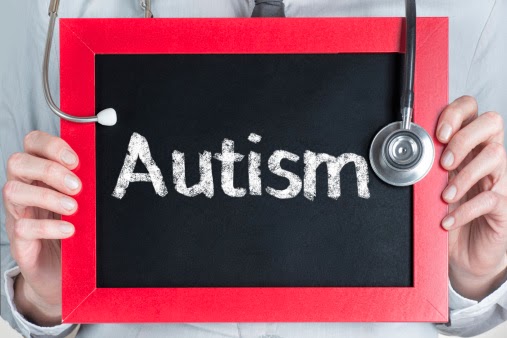Robert was an active, wonderful little 2-year-old boy who was very curious, but he didn’t seem to be able to understand simple instructions, or communicate with others.
He wouldn’t make eye contact, and often had intense tantrums. Robert tended to grab toys from others — more so than other children his age — and forcefully throw objects around the room. His parents were concerned for him and took action, and Robert ultimately was diagnosed with an autism spectrum disorder. Knowing that he needed special support, Robert’s parents enrolled him in the Early Intensive Behavioral Intervention Program at Western Psychiatric Institute and Clinic.
According to the Centers for Disease Control and Prevention, one out of every 68 children meets the diagnostic criteria for an autism spectrum disorder. Diagnosis for autism spectrum disorder can be made as early as 12 to 18 months old for most children. Characteristics that individuals with an autism spectrum disorder may have include:
- Delayed social skills
- Lack of eye contact
- Limited to no speech
- Repetitive behavior
Programs like the Early Intensive Behavioral Intervention Program (EIBI) provide vital services to help children learn new skills in a variety of settings, including their home, school, and the community. WPIC’s EIBI program specializes in providing comprehensive behavioral treatment to young children from 18 months old until they are around 5 or 6 years old.
Collaborative and comprehensive services of the EIBI focus on supporting children to achieve their individual potential. Clinicians put a specific emphasis on learning skills in a positive manner, thus helping to reduce behavioral problems such as tantrums and acting out.
Areas that children may work on include:
- Daily living activities
- Language and communication
- Learning readiness skills
- Social skills and play
“Through the use of Applied Behavior Analysis, an evidence-based treatment, we teach children a wide range of new skills to help improve their functioning in the home and community,” says Jennifer Alfieri, a clinical supervisor at EIBI. “We assess their strengths and areas of need through a number of language, social, play, and adaptive measures, and can design a unique plan to build functional skill sets.”
One way of teaching these new skills is to break them down into simple steps. A child who is learning how to socialize with others, for example, may learn first how to tolerate playing next to another child, offering or receiving a toy to another child or adult, and then beginning to engage in early conversation. Steps may become more complex over time, depending on the individual child and his or her successes. Positive reinforcement is used as a reward for each completed step.
Partnerships between the family and the therapy teams enhance the child’s learning and skill-building, and thus accomplishments. Parents and other family members work with program clinicians so that they can help reinforce and generalize these new skills outside of daily sessions. In time, children can develop a variety of skills, increase their independence, and have greater social successes with their peers.
Many parents write program administrators thanking WPIC for the EIBI program. One recent note from a parent this spring read, “Excellent services are being provided. My son has come so far in just a few months. Thank you!”
At the EIBI program, this is what it is all about — helping children and helping families, one step at a time.
A year later, Robert has accomplished great things — and his parents have noticed big improvements in how their little boy has grown and changed. Robert is able to attend preschool, and receives assistance through a therapeutic staff support provider. He’s able to communicate better, and can now use more than a hundred words, including basic phrases and sentences. He can understand directions, and he’s much more cooperative. Robert’s parents are hopeful that he will enjoy the opportunities that other preschool age children have each day.









